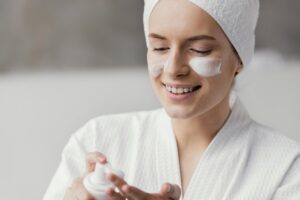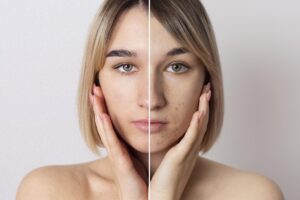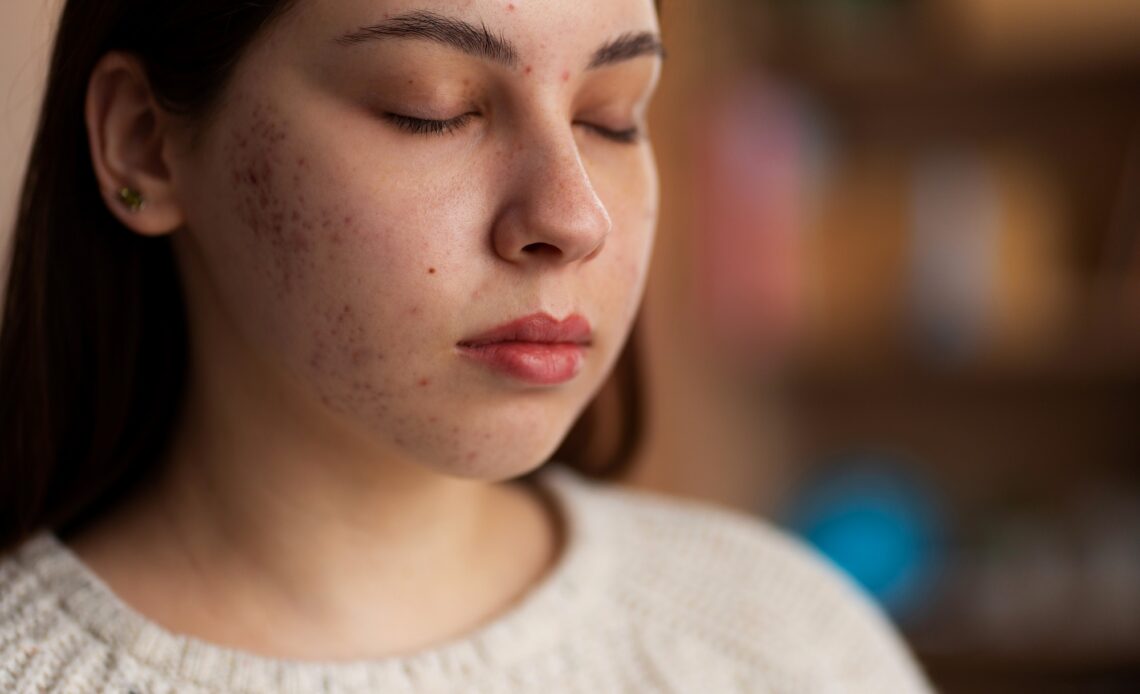Are you struggling with dark spots and uneven skin tone? Hyperpigmentation can be a common skin concern that affects people of all ages and skin types. Whether it’s due to sun damage, hormonal changes, acne scars, or aging, dealing with hyperpigmentation can be frustrating. But fear not, there are effective ways to address this issue and restore your skin’s natural glow.
In this article, we will explore the causes of hyperpigmentation and provide you with the knowledge you need to treat and prevent it. From skincare treatments by expert skin specialist to lifestyle changes, we’ll uncover the best strategies to help you achieve a more even skin tone.
Say goodbye to concealer and hello to radiant, clear skin. With our tips and recommendations, you’ll be on your way to a complexion that you can confidently show off. Let’s dive into the world of hyperpigmentation and discover the solutions that will help you achieve the skin of your dreams.
Understanding Hyperpigmentation and Its Causes

Hyperpigmentation is a condition characterized by the darkening of certain areas of the skin. It occurs when there is an overproduction of melanin, the pigment responsible for giving color to our skin, hair, and eyes. There are several factors that can contribute to the development of hyperpigmentation, and understanding them is crucial in finding effective treatments.
One common cause of hyperpigmentation is sun exposure. The harmful UV rays from the sun can trigger the production of excess melanin, leading to the formation of dark spots. Hormonal changes, such as those experienced during pregnancy or while taking certain medications, can also result in hyperpigmentation. Additionally, acne scars and the natural aging process can contribute to the unevenness of skin tone.
The Impact of Hyperpigmentation on Self-Esteem and Confidence
Hyperpigmentation can have a significant impact on one’s self-esteem and confidence. The appearance of dark spots and uneven skin tone can make individuals feel self-conscious and may lead to feelings of insecurity. This can affect various aspects of their lives, from social interactions to professional settings.
It is important to address hyperpigmentation not only for aesthetic purposes but also for mental well-being. By understanding the causes and finding effective solutions, individuals can regain their self-confidence and embrace their natural beauty.
Common Types of Hyperpigmentation

Hyperpigmentation can manifest in different forms, each with its own characteristics. Understanding the different types can help in identifying the most suitable treatment options.
Melasma is a common type of hyperpigmentation that is often triggered by hormonal changes. It usually appears as brown or grayish patches on the face, particularly on the cheeks, forehead, and upper lip. Another type is post-inflammatory hyperpigmentation, which occurs as a result of skin trauma, such as acne breakouts or skin injuries. This type of hyperpigmentation appears as dark spots or patches that can take months or even years to fade.
Factors That Contribute to the Development of Dark Spots and Uneven Skin Tone
While certain factors, like sun exposure and hormonal changes, have already been mentioned, there are other contributors to the development of dark spots and uneven skin tone.
Genetics can play a role in hyperpigmentation, as some individuals may be more prone to developing dark spots due to their genetic makeup. Additionally, certain medications, such as antibiotics or antimalarial drugs, can increase the risk of hyperpigmentation. Lastly, lifestyle habits, like smoking or a poor diet, can also impact the skin’s overall health and contribute to the appearance of dark spots.
Preventive Measures to Avoid Hyperpigmentation
Prevention is always better than cure when it comes to hyperpigmentation. By taking certain preventive measures, individuals can reduce the risk of developing dark spots and uneven skin tone.

One of the most important steps is to use sunscreen daily, even on cloudy days or during the winter months. Sunscreen with a high SPF will protect the skin against harmful UV rays and prevent the overproduction of melanin. Wearing protective clothing, such as hats and sunglasses, can also provide an additional layer of defense against sun damage.
Maintaining a healthy skincare routine is essential in preventing hyperpigmentation. Cleansing the skin twice a day, exfoliating regularly, and using products with ingredients like vitamin C or niacinamide can help in brightening the skin and reducing the appearance of dark spots.
Skincare Products and Ingredients That Help Address Hyperpigmentation
When it comes to treating hyperpigmentation, there are several skincare products and ingredients that have been proven to be effective.
One of the most popular ingredients for addressing dark spots is hydroquinone. It works by inhibiting the production of melanin, thus lightening the skin. Other ingredients to look for include retinoids, which promote cell turnover and help fade dark spots, and alpha hydroxy acids (AHAs) like glycolic acid, which exfoliate the skin and improve its texture.
When choosing skincare products, it is important to consider your skin type and any potential sensitivities. It is also recommended to consult with a dermatologist who can provide personalized recommendations based on your specific needs.
Natural Remedies and DIY Treatments for Hyperpigmentation
If you prefer a more natural approach to treating hyperpigmentation, there are several remedies and DIY treatments that you can try.
Lemon juice is a popular natural remedy for lightening dark spots. Its high vitamin C content helps in reducing melanin production and brightening the skin. Another option is apple cider vinegar, which contains acetic acid that can exfoliate the skin and fade hyperpigmentation. However, it is important to note that natural remedies may take longer to show results and may not be as effective as professional treatments.
Professional Treatments and Procedures for Hyperpigmentation
For individuals seeking faster and more dramatic results, there are various professional treatments and procedures available.
Chemical peels are a common treatment option for hyperpigmentation. They involve the application of a chemical solution to the skin, which exfoliates the top layers and promotes the growth of new, evenly toned skin. Laser therapy is another popular choice, as it can target specific areas of hyperpigmentation and stimulate collagen production.
It is important to consult with a dermatologist or skincare professional to determine the most suitable treatment option for your specific case of hyperpigmentation. They will be able to assess your skin condition and recommend the most effective course of action.

Lifestyle Changes to Support Healthy Skin and Prevent Hyperpigmentation
In addition to skincare treatments, making certain lifestyle changes can help in supporting healthy skin and preventing hyperpigmentation.
Maintaining a balanced diet rich in antioxidants and vitamins can promote skin health and reduce the risk of dark spots. Foods like berries, leafy greens, and fish are known to have skin-boosting properties. Additionally, staying hydrated by drinking plenty of water can contribute to a healthy complexion.
Avoiding smoking and excessive alcohol consumption is also important, as these habits can have a negative impact on the skin’s overall health and contribute to the development of dark spots.
Conclusion
Hyperpigmentation may be a common skin concern, but it doesn’t have to define your self-esteem. By understanding the causes and exploring the various treatment options available, you can take control of your skin’s appearance and embrace your natural beauty.
Whether you choose to incorporate skincare products, try natural remedies, or opt for professional treatments, the key is to be consistent and patient. Results may take time, but with dedication and the right approach, you can achieve a more even skin tone and regain your confidence.
Remember, your skin is unique and beautiful, regardless of any imperfections. Embrace your skin journey and celebrate the progress you make along the way. You deserve to feel confident and comfortable in your own skin.


